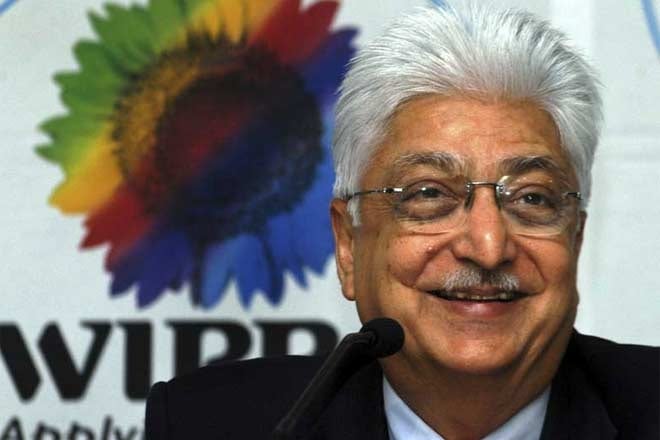Azim Premji, the executive chairman of India’s third largest IT services exporter – Wipro has seen a 63% drop in salary for FY17 with no commission paid during the fiscal as the company registered a decline in net profit. Azim Premji’s salary for FY17 stood at $1,08,206 as compared to $2,92,991 in FY16, according to filings with the US SEC. This salary does not include the long-term benefits like provident fund and pension.
The regulatory filings by Wipro said, “Azim Premji is entitled to a commission at the rate of 0.5% on incremental net profit of Wipro Limited for fiscal year 2017 over the previous year….For the year ended March 2017, commission paid to Premji is nil.”
Wipro reported a net profit of Rs 8489.5 crore for FY17 which was a decline of 4.69% as compared to FY16. However, the consolidated revenue grew by 7.34% during FY17 to touch Rs 55,418 crore.
Rishad Premji, chief strategy officer and board member, Wipro also saw a 23% drop in salary for FY17. His total salary without including the long-term benefits stood at $2,33,479 for FY17 as compared to $3,03,198 in FY16.
Rishad Premji who was appointed to the board in May 1, 2015 received a commission of $48,498 for FY17.
However, Wipro CEO Abidali Neemuchwala saw a 17% rise in salary during FY17. His total salary during FY17 stood at $2,08,1581 as compared to $1,975,890 in FY16. Neemuchwala was appointed as the CEO in February 1, 2016 from the earlier position of COO.
T K Kurien, the former executive vice chairman of Wipro also saw a 28% drop in salary for FY17. His total salary for FY17 stood at $1,415,782 as compared to $1,975,890 in FY16. Kurien was the executive vice chairman between April 1, 2016 to January 31, 2017.
Watch this also:
The drop in compensation for the key executives of Indian IT companies is also a reflection of the lowered growth rate of the sector. Infosys CEO Vishal Sikka also saw his salary drop by 67% during FY17 primarily due to the company recording a single digit growth rate.
The $150 billion Indian IT industry recorded a growth of 8.5% for FY17 and the expectation is that it is likely to record only single digit growth rate during the current fiscal. The sector has witnessed a continuous slowdown and the change in the regulations on visas by the US government has only added to its woes.

